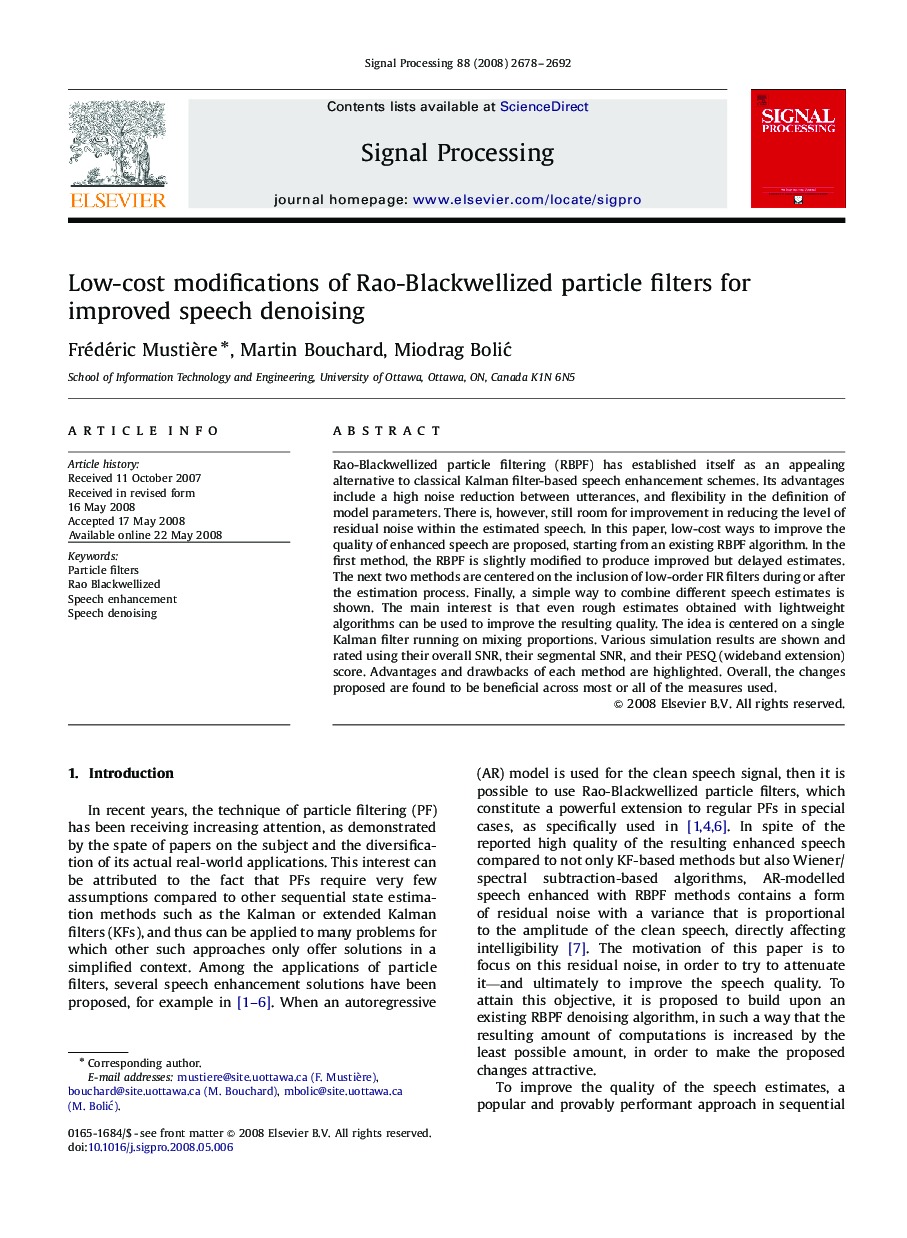| Article ID | Journal | Published Year | Pages | File Type |
|---|---|---|---|---|
| 564586 | Signal Processing | 2008 | 15 Pages |
Rao-Blackwellized particle filtering (RBPF) has established itself as an appealing alternative to classical Kalman filter-based speech enhancement schemes. Its advantages include a high noise reduction between utterances, and flexibility in the definition of model parameters. There is, however, still room for improvement in reducing the level of residual noise within the estimated speech. In this paper, low-cost ways to improve the quality of enhanced speech are proposed, starting from an existing RBPF algorithm. In the first method, the RBPF is slightly modified to produce improved but delayed estimates. The next two methods are centered on the inclusion of low-order FIR filters during or after the estimation process. Finally, a simple way to combine different speech estimates is shown. The main interest is that even rough estimates obtained with lightweight algorithms can be used to improve the resulting quality. The idea is centered on a single Kalman filter running on mixing proportions. Various simulation results are shown and rated using their overall SNR, their segmental SNR, and their PESQ (wideband extension) score. Advantages and drawbacks of each method are highlighted. Overall, the changes proposed are found to be beneficial across most or all of the measures used.
